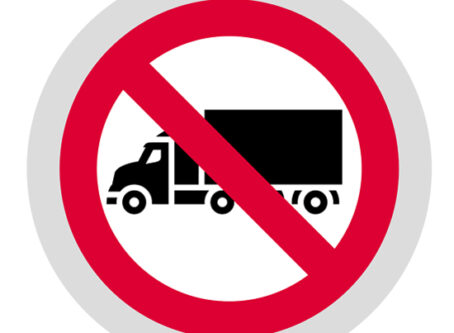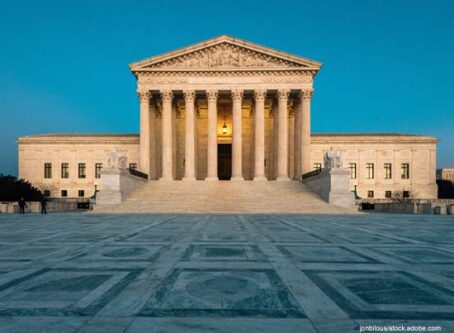K&B Transportation must face crash lawsuit, appellate court rules
South Sioux City, Neb.-based K&B Transportation will have to face a crash lawsuit after a federal appeals court overruled a lower court’s decision to dismiss the case.
On July 24, the Seventh Circuit Court of Appeals reversed an order from a district court in the Northern District of Illinois awarding summary judgment to K&B Transportation. Moses Perez had sued the trucking company after he lost control of his SUV in wintery conditions, causing K&B Transportation driver Kiara Wharton to crash into him.
The lower court had excluded Perez’s expert witnesses on crashes and truck driving. However, the appellate court ruled that there was enough evidence to suggest that Wharton was driving too fast for the weather conditions, remanding the case back to the district court.
Facts of K&B Transportation crash
In January 2016 at around 5:18 a.m., Perez and Wharton were traveling eastbound on Interstate 294 in Cook County, Ill. According to court documents, it was dark, cold, snowy and icy. Perez was driving in the right I-Pass lane when his SUV spun out of control. According to the appellate opinion, the details of how his SUV lost control are disputed. Perez testified he was driving 15-30 mph in a 55 mph zone. Consequently, Wharton’s truck struck the right rear portion of Perez’s vehicle, causing it to rest against the median wall.
A few factors of the crash are under dispute. First, there are questions about how Perez’s SUV spun out and whether Wharton reacted appropriately.
Second, parties dispute the proper driving speed of the K&B Transportation truck given the weather conditions.
Perez claimed his SUV hit a patch of black ice, swerved and then returned to the original lane in which Wharton was following behind Perez. He also claimed Wharton was driving too fast for conditions by driving at or slightly above the posted speed limit.
Wharton claimed that after Perez’s vehicle spun out it moved from the right lane to the left side of the highway. She claimed she slowed down when that happened. However, she said Perez then unexpectedly cut all the way across to the right side of the highway. Wharton said she was unable to avoid striking Perez because of the unusual driving behavior. Regarding the K&B Transportation truck’s speed, Wharton testified that she did not remember exactly how fast she was going. However, she had downshifted to third or fourth gear before impact, putting the truck speed around 10-15 mph.
Expert witness reports thrown out
In January 2017, Perez filed a lawsuit against Wharton and K&B Transportation. During proceedings, Perez submitted accident reconstruction expert Mike DiTallo and commercial vehicle expert Adam Grill as witnesses. K&B Transportation argued that their opinions were speculative and not based on the facts of the case. The lower court and Seventh Circuit agreed.
In his report, Grill’s only case-specific evidence referenced the state trooper’s crash report. Grill’s conclusions included:
- Wharton failed to look far enough ahead to perceive any road hazards in front of her.
- She failed to keep a safe and adequate distance between herself and Perez’s SUV.
- Wharton’s collision was avoidable.
However, Grill failed to explain his methodology. When pressed on his conclusions, Grill could not give a definitive answer. From the appellate opinion:
When asked about how far ahead Wharton should have been able to see, Grill could not say. When asked what a safe following distance would have been for Wharton in this case, he could not say. When asked what “traffic” he referred to in his report, he responded, “generally, just other vehicles, so somewhere like an interstate in Illinois, I would expect there to be other traffic.” When asked for the basis for his opinion that Wharton exhibited characteristics of an “aggressive driver,” Grill explained that she was “probably driving too fast, probably not maintaining a safe following distance, probably not keeping a proper lookout.” Grill also agreed that certain statements in his expert report were irrelevant to the facts of this case. In addition, Grill’s explanation for his opinion that Wharton risked a late delivery was based on speculation.
DiTallo’s report on the K&B Transportation crash stated, “There is not enough data to perform a detailed crash reconstruction in this matter.”
Despite the lack of data, DiTallo concluded that Perez’s story was possible but Wharton’s story was not. Both courts ruled the expert reports were inadmissible.
Challenges against speed and residency
Originally filed in an Illinois state court before it was moved to a federal court, Perez attempted to dispute Wharton’s Texas residency to get the case back in a state court. Essentially, Perez claimed that Wharton has not proven she lived in Texas. Being a long-haul trucker, Wharton had no residence of her own but lived with a family member in Texas. Perez claimed she has not introduced evidence such as real estate ownership, payment of state taxes or voting in Texas.
However, Wharton does hold a Texas CDL, which requires applicants to provide several documents demonstrating residency. Perez argued that there was no proof she actually submitted those documents to obtain her CDL. Without such proof, the appellate panel ruled, there was no reason to believe any fraud was committed. Subsequently, Perez’s attempt to move the case out of federal court failed.
The appellate court then moved to the final question: could a reasonable jury infer negligence?
Specifically, was Wharton driving at a speed safe for the weather conditions?
First, Perez and Wharton tell conflicting stories. The appellate court ruled this is a jury matter.
“Without conclusive expert evidence, this is a classic jury question in which Wharton’s credibility must be weighed against Perez’s,” the court opined.
Second, the appellate panel ruled that given the icy conditions, compliance with the posted speed limit is not necessarily enough to avoid liability, per Illinois law.
The district court relied on Wharton’s testimony as to her speed at impact. However, the appellate court argued the more critical question is how fast Wharton was going before she began braking in response to Perez’s spin, and whether this speed and her following distance were safe under the circumstances.
This question, the appellate panel ruled, is best suited for a jury.
The Seventh Circuit remanded the case to the federal district court. The case will continue without the expert witnesses for further proceedings to address the speed factor of the crash.









